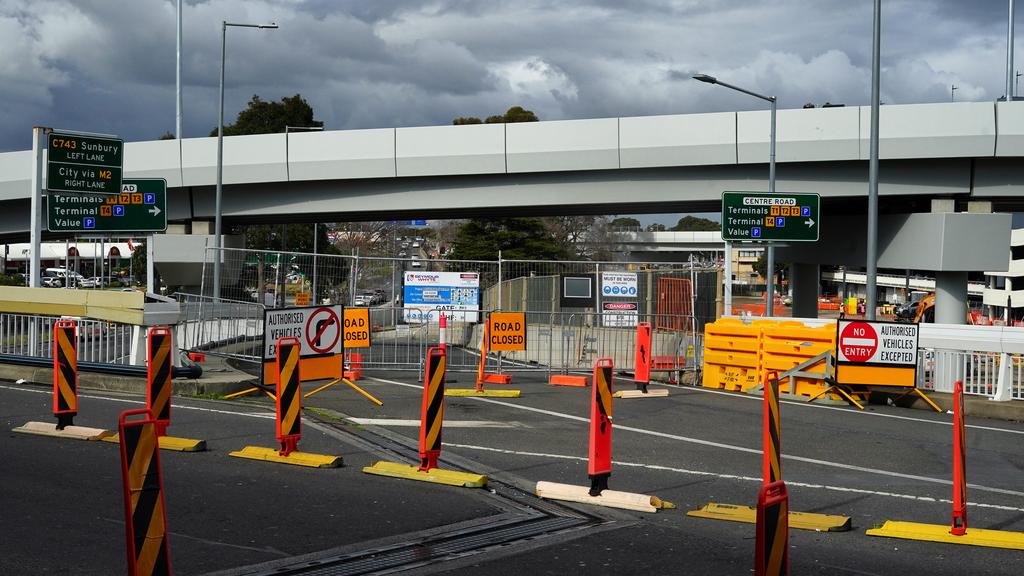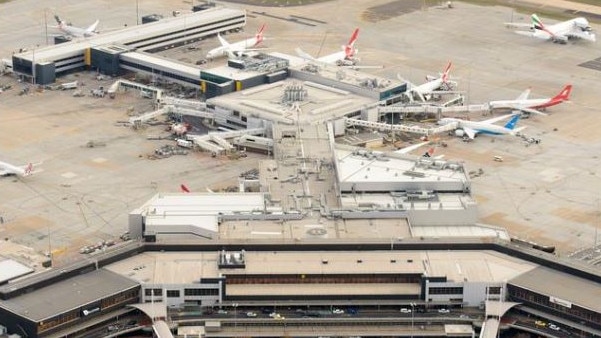Melbourne Airport takes Dexus to court for releasing confidential data

Melbourne Airport is the site of a battle between Dexus and its superannuation fund co-owners. Picture: Luis Enrique Ascui
The company that owns Melbourne Airport has argued property group Dexus released confidential information to Singapore’s sovereign wealth fund GIC as part of a sales process last year that turned the airport’s investors against each other.
GIC happens to have close ties to state investor Temasek Holdings, a majority owner of Singapore Airlines. The Middle Eastern fund backing Emirates was also allegedly privvy to the closely guarded airport secrets.
Dexus is alleged to have released the confidential information about Melbourne Airport when it was trying to sell off a 9.7 per cent slice of the investment vehicle that owns both Melbourne and Launceston airports.
The other owners of Australia Pacific Airports Corporation now want Dexus evicted.
The allegations, lodged in the NSW Supreme Court and denied by Dexus, are the latest to emerge from the court battle brought by its superannuation fund co-investors against the listed property and infrastructure group.
Industry super funds are flexing their muscles in corporate battles ranging from control of Lendlease’s local wholesale property funds to the governance of WiseTech.
NSW state body TCorp alleges Dexus released confidential information to both GIC and Middle Eastern fund MIC, both of which indirectly hold substantial interests in airlines, with GIC also holding interests in rival airports, according to court filings.
Dexus intended to bring in new investors offering a 9.7 per cent interest in APAC and keeping them under its wing, rather than simply offloading the same stake to its existing co-investors.
The Future Fund, IFM Investors, the Utilities Trust of Australia and NSW’s TCorp have complained that potential buyers should not have been distributed the confidential documents.

APAC owns the Melbourne and Launceston airports.
Dexus has defended its actions on the basis it had the right to offer the 9.7 per cent interest, in a process dubbed Project Mercury and run by investment bank JPMorgan, because appropriate controls were in place to manage the handling of the information.
APAC co-owners issued notices to Dexus in May saying it had breached confidentiality obligations owed to them, and it should sell its entire 27 per cent stake.
Dexus has not released confidential information to non-associates, and asked for information to be destroyed or returned once the sales process ended.
It also acts on behalf of other super funds, including Rest, which represents part of its 27 per cent holding, known as the Dexus bloc. Rest says it should not be forced to sell up as collateral damage.
The Dexus sales process allegedly ignored pre-emptive rights that the 73 per cent co-owners held to buy any shares that become available. Now they have taken issue with information being sent to GIC given it has ownership interests in Sydney and Brisbane airports, too.
GIC handles Singapore’s foreign reserves and associate Temasek acts as an investment company, including holding a majority stake in Singapore Airlines. Both have tight ties to the Singapore government.
Mubadala Investment Company, an investment vehicle for Abu Dhabi, is one of a group behind flagship UAE airline, Emirates.
The super funds also raised concerns about GIC’s consultants PwC and Deloitte having access. They added consultants used by MIC Infrastructure Investments, which also included Lime Intelligence, Boston Consulting Group and Cushman & Wakefield having access, to their complaint.
APAC has claimed it was effectively blindsided by the Dexus sales process.
The property company has countered the airport owner was aware of it, and no confidential information was improperly shared.
Winning the court battle against Dexus — and forcing it out — would bolster the position of both NSW TCorp and the industry super-backed IFM Investors.
But, Dexus is determined to hang on as its 27 per cent stake is the most valuable in the APAC sphere as it carries rights to two board representatives and veto powers on special resolutions, giving it a form of control.
Dexus, in its own filings, has insisted its investors had requested a liquidity mechanism to sell out and it was simply seeking to assist them in maximising the price to be paid.







